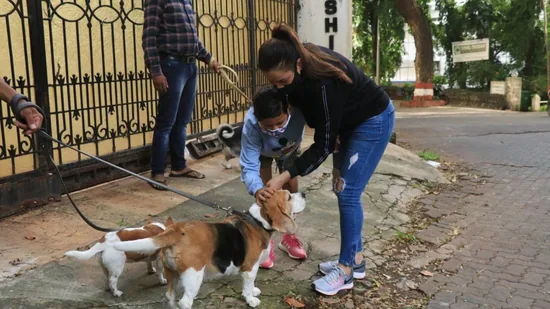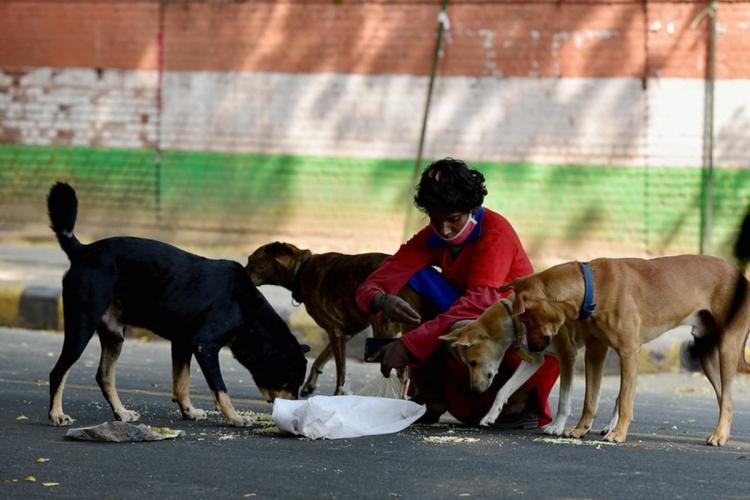The stay on a Delhi High Court ruling from last year that declared stray dogs had a right to food and water and individuals have the right to feed them was lifted on Thursday (May 19) by a three-judge bench of the Supreme Court.

Feeding and caring for stray dogs is a contentious topic in Indian cities, with frequent disagreements and clashes erupting between dog enthusiasts and others who are afraid of or frightened by the animals. Each side accuses the other of being callous and uncaring.
The Supreme Court’s decision clears the way for community dogs to be fed in Delhi, either on private driveways/porches or at locations determined in conjunction with local welfare organisations. The local police will be responsible for ensuring that no caregiver or community dog feeding is harassed.
On March 4, a Supreme Court division bench comprised of Justices Vineet Saran and Aniruddha Bose halted the implementation of the High Court’s June 24, 2021 ruling.
The stay was lifted on Thursday by a three-judge bench consisting of Justices U U Lalit, S Ravindra Bhat, and Sudhanshu Dhulia, allowing the Delhi High Court ruling to be executed.
Animals have a legal right to be treated with compassion, respect, and dignity, according to a single-judge bench of the High Court, and their protection is the “moral obligation of each and every person, including governmental and non-governmental organisations.” (2021, ‘Dr Maya D Chablani vs. Radha Mittal and Others’)
“Community dogs (stray/street dogs) have the right to food, and citizens have the right to feed community dogs,” Justice J R Midha wrote in his order. “However, care and caution should be exercised in exercising this right to ensure that it does not infringe on the rights of others or cause any harm, hindrance, harassment, or nuisance to other individuals or members of the society.”
“It must be the obligation and responsibility of the RWA or Municipal Corporation, as well as other Government officials, including…Police, to provide all support and ensure that no impediment is provided to carers or feeders of community dogs,” the ruling stated.
Community dog feeding must take place in places specified by the Animal Welfare Board of India (AWBI) in cooperation with the municipal corporation’s RWAs. The High Court stated that these specified zones must be finalised while keeping in mind that “every community dog is a territorial being and must be fed and cared to at sites inside their territory.”
As a result, each pack of strays should preferably have its own designated feeding location, “even if it entails designating many areas in a neighbourhood,” as per the HC’s directive.
Strays can also be fed at “their (feeders’) own entrance/porch/driveway or any other site not shared with other residents,” according to the HC decision.
The HC said that no one can prevent someone from feeding dogs “unless and unless it causes injury or annoyance to that other person.”
All law enforcement authorities are responsible for ensuring that no one is hindered from engaging in activities involving street dogs in the designated areas. The local SHO must also “maintain peace and harmony among inhabitants of the region,” according to the HC.
According to the HC, every RWA should establish an Animal Welfare Committee to guarantee compliance with the Prevention of Cruelty to Animals Act and to foster peace among feeders and other residents. Residents must first approach the committee if they have a complaint.
The HC’s ruling from June 2021 stemmed from a private disagreement in which the defendants were ordered to stop feeding stray dogs near the entrance of a property listed in the complaint before the court.
On Thursday, the Supreme Court was informed that the two sides had reached an agreement. The court then stated that the NGO attempting to dispute the HC judgement lacked legal standing to do so since it was not a party to the previous litigation, which had been resolved.
The order of the HC had been challenged by the NGO ‘Humane Foundation for People and Animals.’











